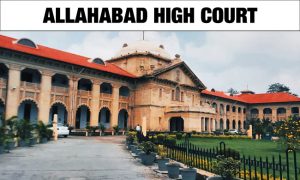
Facts of the Case:
The petitioner challenged the blocking of Input Tax Credit (ITC) amounting to ₹13,96,220/- in its Electronic Credit Ledger (ECL) by the jurisdictional officer under Rule 86A of the U.P. GST Rules, 2017. The petitioner contended that the ITC was blocked pursuant to an e-mail communication dated 24.07.2025, without the mandatory recording of “reasons to believe” in writing as required under Rule 86A(1).
It was revealed that the blocking was based on an “Alert Notice” dated 13.06.2025 received by the Commissioner of State GST from the DGGI, Raipur Zonal Unit, alleging that the supplier, M/s Maa Kamakhaya Trading, Surguja, was non-operational and had issued bogus invoices without actual supply of goods. The petitioner argued that such a generic communication could not substitute the statutory requirement of independent satisfaction and recording of reasons by the proper officer.
The respondents defended the action, stating that under Rule 86A, no opportunity of hearing was required prior to blocking of ITC and that the petitioner could file an objection or representation before the Commissioner under Rule 86A(2).
Issue:
Whether the blocking of ITC under Rule 86A of the U.P. GST Rules, 2017, without recording “reasons to believe” in writing by the proper officer, is valid in law.
Held that:
The Court observed that Rule 86A requires that before blocking ITC, the officer must record “reasons to believe” in writing based on tangible material. The expression “reasons to believe” must have a rational basis and cannot rest on vague or extraneous considerations. The “reason” stated as “Supplier found non-functioning” in the ECL did not reflect application of mind by the jurisdictional officer. The DGGI communication was generic and non-specific; it did not establish that the petitioner had received fraudulent ITC.
The Court emphasized that maintaining the ITC chain is the “soul of the GST regime”. Blocking ITC without fulfilling statutory preconditions disrupts the value addition chain and leads to unjustified tax consequences.
Accordingly, the Court held that the action of blocking ITC vide e-mail dated 24.07.2025 was illegal and unsustainable. The authority was directed to unblock the ITC forthwith, with liberty to proceed afresh in accordance with law, if proper reasons are duly recorded. The Court allowed the writ petition and set aside the ITC blocking, holding that the jurisdictional officer had not complied with the mandatory requirement under Rule 86A(1) to record “reasons to believe” in writing before blocking ITC.
Case Name: M/s Pilcon Infrastructure Pvt. Ltd. Versus State of U.P. and Another dated 29.10.2025
To read the complete judgement 2025 Taxo.online 2855


